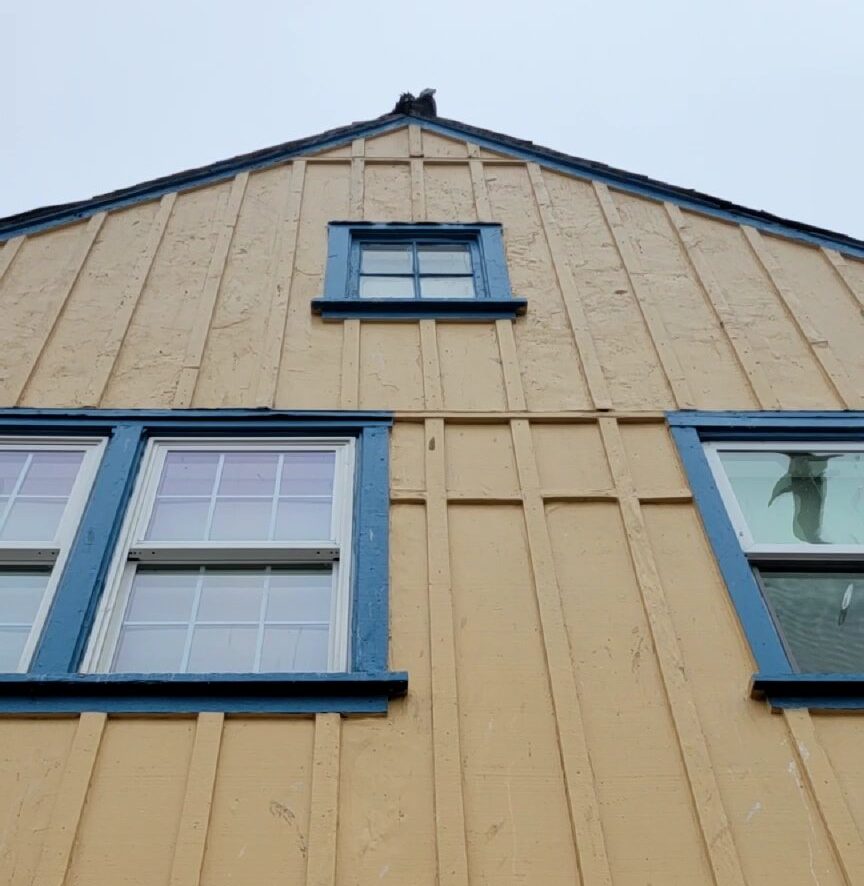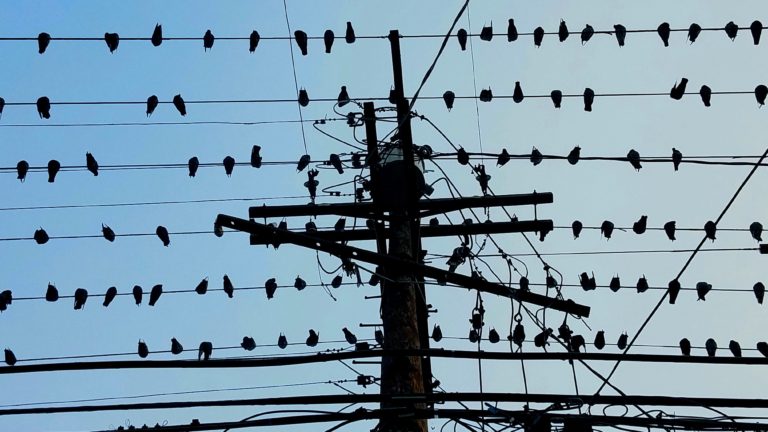Zary Fekete-Fiction

Tuning
The act of taking in a piano to one’s home brings with it a certain responsibility. The instrument, left alone, will not stay in tune. It will require regular maintenance. If the piano owner does not keep the instrument in tune then the sounds played on the instrument will become degraded, leaving the listener disappointed and put off.
“I hate you! I wish you were dead!!”
The words echoed off of the walls of the living room and were punctuated by the slam of my daughter Claire’s bedroom door. It happened every day. I couldn’t keep the fights straight anymore. I smothered her. She had no freedom. She wanted to move out.
Was this what I had been like when I was young? Surely not. What had I been like? Claire seemed so forceful. So full of spirit when something spited her. I couldn’t ever remember feeling that way. I was always content for other people to do things for me. When it was time to make a decision it always seemed easier to go along with what my girlfriends wanted to do.
I stared at Claire’s closed door for a moment, trying to remember what I had done wrong. I couldn’t remember. I stood next to the piano and traced a finger across the key cover. I willed my mind to slow down. What had we been arguing about? Something about algebra. But it wasn’t really about algebra. It never was.
I took a deep breath. Claire would come back out shortly. She always did and then we would make up, only to start at it again later. The cycle was endless and exhausting.
Over time the wooden elements of the piano will degrade, requiring the fresh application of glue. Depending on the degree of degradation, certain parts of the piano may need to be replaced. A certified piano tuner will be able to assist the owner in determining the state of the piano. It is best for the owner to resist fixing the piano themselves, because this could result in the piano becoming more damaged.
I sat down on the piano bench, fingering through several loose sheets of music. I hadn’t really played since high school. The piano was a gift from a friend who moved last month. The instrument came with several sheets of beginning music and a few simple pieces by Beethoven. I picked something randomly and started to play but immediately stopped. No. No, not right. I thumped the black key a few times. My friend told me it would need tuning. I kept putting it off and dealing with the off-key D Flat. Come to think about it, that was very much like me, too. I’d never been one to fix things or take matters in to my own hands. I usually waited for others to do the fixing. That’s why the piano wasn’t tuned. I hadn’t the energy to make a call. I just put up with the out-of-tune D Flat. But today my ears couldn’t take it.
I stood from the piano and walked toward the kitchen when the doorbell rang. I opened the front door and saw a middle-aged man in a grey suit. He held a leather bag which looked well-used.
“Hello, madam,” he said. “I understand you have a piano in need of a tune-up?”
I hesitated. How did…?
He produced a few tools from the bag to show me he was the real thing. Wordlessly I stepped aside. He came into the entryway and took off his shoes. They were scuffed, but well-cared for otherwise.
“It’s down here, I believe?” he said, indicating the hallway which led to the den.
“Yes,” I said. “Did Mary call you?”
He smiled at me and turned to walk down the hall. “No,” he said. “I could hear you playing from the street. That D flat key isn’t quite right, is it.” He chuckled as he turned into the den.
When he saw the piano against the wall he let out a sigh. He passed his hands over the dusty top like he was petting a cat. “She’s a nice one,” he said. “How long have you had her?”
“Only about a month,” I said.
“Did you have experience playing piano before she arrived?”
To my surprise, I felt glad he was here. “Yes,” I said. “I bit. I mean, I played some when I was a young girl, but nothing much recently until…she arrived.” I smiled to myself, enjoying the female pronoun he had given the old instrument.
He nodded. “May I?” he said, indicating the bench.
“Please.”
One of the key decisions a certified piano tuner will make is which tuning hammer to use. Different hammers will be made with a wide array of different materials, and the hammer’s length, angles of head, and tip, may all be different depending on the choice of hammer. A low-quality hammer may only be formed from a single piece of material. Good hammers are as carefully crafted as the piano itself.
He sat down and began to trill his fingers up through the keys a few times. I noticed he purposefully didn’t strike the guilty D flat key, almost as though he was saving it for greater attention.
“Lovely,” he said. “She has a lot of life in her yet. Now then…” He straightened his back and struck the D flat key a few times. With each thump the note gonged off-key. “Has it always sounded like that?”
“Yes,” I said. I felt ashamed. “I have been meaning to get it checked out, but I wasn’t sure…”
“…wasn’t sure how to get ahold of me?” He turned to me with a smile.
I smiled back. “Yes, I suppose.”
He stood up and opened his leather bag. He took out a small, gold-colored instrument. It was a tuning hammer. He opened the top of the piano. With a small grunt he lowered his arm into the piano back. I could hear the faint tinging of strings as his hand moved around in the piano’s depths.
“Strike that D Flat a few times, would you please?” he said.
I moved forward and thumped the black key. As I did so, I could hear the note subtly change. It went from twanging off-kilter in the room to a more rich, refined sound. As the note changed the man’s face changed with it, his smile increasing in joy.
“Ah, that should do it,” he said, and pulled his hand out of the piano. He closed the top and sat back down on the bench, putting the tuning hammer down next to him. He cracked his knuckles quietly for a moment and placed his hands on the keys.
Then he played. The air in the room filled with a cascade of notes, tumbling across one another. The air seemed to shimmer around him from the rich, thick chords. Satisfied he stood from the bench and snapped his case shut.
“Well, no problems now,” he said. “May I wash my hands in your bathroom?”
“Of course,” I said. “It’s just down the hall.”
He nodded, moving down the hall. I followed him. A moment later I heard the water flowing from the tap. I marveled at how quickly the whole thing had happened. I was strangely delighted. The problem was fixed and I didn’t have to do anything. The water in the bathroom shut off, and he returned, straightening his suit.
“Madam, I thank you,” he said. He handed me a card. It was white with black lettering. It said, Mr. Anderson, Tuning. “If you have any more problems, just call me.”
“What…what do I owe you?” I said.
“Oh, nothing,” he turned to me with a smile. “I love any opportunity to improve something.” Then he walked down the hall, opened the door, and was gone.
The act of tuning the piano requires deft assessment on the part of the tuner. A wrong move will leave the piano in worse shape. Over-tuning, the act of twisting the hammer farther than the strings require, may result in damage to the inner workings of the instrument.
Slam! I heard Claire’s steps disappear outside as she ran for the school bus. My hands were lifted, mid-argument, where she had cut me off. This time it was about the tattoo she got last week. I asked her where she got the money to pay for it. Her faced flushed red, she called me a bitch. And, now, as usual, she was gone.
I dropped my hands and went to the kitchen. The unwashed dishes in the sink stared up at me. Below the sink on the ground there were several day’s-worth of accumulated food stains. Looking at it made me feel guilty and tired. Cleaning was another thing I did reluctantly and only when it couldn’t be put off anymore. The stains on the floor told me this was one of those times.
I reached for the sponge. It was soggy and ragged. I bent for the lower drawer to get a new one. The drawer stuck as I pulled at it. I had to yank extra hard and then it gave way with a jerk and the face plate struck my knuckles. I winced and sucked at my hand as I took out a new sponge from the drawer. Slowly I soaped the sponge and gave a few limp passes across the plates.
I piled the plates in the drying rack but I couldn’t bring myself to tackle the silverware in the bottom of the sink. I stood in the kitchen for a moment listening to the drip drip of the water gurgling down the drain. I turned and wandered into the den. Maybe I would try the Schubert piece this time.
I stopped. The tuning hammer. It was still on the bench. Mr. Anderson forgot it. Surely, he would be back once he realized it was gone. I reached down and picked it up. It had a heavy, balanced feel. The hammer felt strangely warm against my fingers.
I walked back into the kitchen and reached for the lower drawer. As I did the tuning hammer bumped against the face plate. I braced myself this time, ready the drawer to stick. To my surprise, the drawer slid out effortlessly. I felt like I was touching melted butter. I slid the drawer in and out a few more times.
How long had the drawer been sticking? Several weeks at least. And now, suddenly, it was smooth? I frowned as I looked at the drawer face. I bent down to look under the bottom of the drawer. As I did I put the tuning hammer on the ground. I didn’t see anything under the drawer but smooth wood.
I closed the drawer and reached down for the tuning hammer. My mouth dropped open. The fork lay on the floor with circle of clean tile around it. The food stains around it were gone. The circle was perfect as though it was drawn with a compass.
Slowly I reached for the hammer. I touched it, half expecting it to shock me. It didn’t, but it did feel warm. I picked it up and cradled it in my hand for a moment. I turned it over a few times. I noticed a small engraving near the handle. Mr. Anderson. Tuning. I looked at the drawer and then back down at the circle in the stains.
Feeling ridiculous I lowered the hammer over another dirty section of the kitchen floor. Nothing happened. Then I touched the hammer to the ground. I gasped. The stains dissolved as though they were oil separating from water. I dropped the hammer in surprise. It skittered across the floor a few inches and came to rest on a new section of the floor, and, once again, it was surrounded by a perfect circle of clean tile.
I stood up and backed away from the hammer. The kitchen was silent. Outside I could hear birds in one of the trees twittering. I stared at the hammer. Then I reached into my pocket to took out the card. Mr. Anderson. Tuning.
Carefully I reached down and picked up the hammer. I looked around the kitchen. My eyes settled on the wall mirror. There was a small piece broken from the corner, a casualty of one of the arguments with my daughter from the last few days. I stepped across to the mirror. I looked at my reflection, surprised to see my mouth was still open. I closed my mouth, bent down, and gently touched the hammer against the broken corner of the mirror. Noiselessly the glass extended itself, as though it was liquid mercury, and filled in the broken corner.
My throat felt constricted. I stood up and closed my eyes. Breathe, I said to myself.
In theory, a longer lever on the hammer is better than a shorter one. The reason for this is because most tuning consists of making extremely minute adjustments in rotation to each tuning pin. For example, if a pin is meant to be turned by one degree, a 254 mm long lever, will only be rotated 4.3 mm. Such small adjustments are far easier to control with a long lever.
Later that afternoon I sat in the living room on the couch. On the coffee table were several objects. I had collected them from throughout the house. A broken doll, forgotten from under my daughter’s bed. A sweatshirt from a camping trip from last summer with a stain on its arm. A coffee cup which I had purposefully broken by dropping it onto the kitchen floor. They were all lined up on the table. I had touched each one with the hammer. They were flawless with no cracks or stains. I stared at them. And I kept looking down at the tuning fork in my right hand, feeling its warmth pulsing against my fingers.
A loud crack shattered my thoughts. I jumped. I looked up. The living room window suddenly had a crack running from top to bottom. I stood and walked to the window. Then I looked out through the glass at the ground outside. There was a small sparrow flittering on the ground. It had flown against the window and broken its wing. Wordlessly I held the hammer against the window and watched the crack repair itself. Then I walked to the front door and went out back.
I stood over the sparrow. It was frightened. It kept craning its head around, trying to make its useless wing work. Slowly I crouched down next to it. I held out the hammer. The tiny bird shuddered and was still. It was looking at me with one terrified eye. Gently I touched the fork against its wing.
With a small hop the sparrow righted itself. It took a few practice flaps. It folded both wings against its body and looked at me for a moment. Then it flew up into the sky and was gone.
A tuning hammer’s ability to adjust the internal pins of a piano is a double-edged sword. Proper adjustments will result in a sublime sound. Too much change to a pin, however, and one runs the risk of distorting a piano’s sound even more, potentially risking ruining the internal components of the piano in the process of attempting to tune it.
It was late afternoon by the time I heard my daughter’s step outside the front door. I sat in the living room on the piano bench. The fork was in my hand. The door opened and closed and then I saw her crossing the doorway toward her bedroom.
“Claire?” I said.
She stopped, cocked her head and looked me, as though she was ready for it to begin again. “What?” she said.
“Would you come in here for a moment?”
She rolled her eyes. “I’ve got homework. Can’t it wait?”
“It will just be a second.”
She shrugged and came into the room, dropping her bag on the floor. She circled around to the couch and sat down, twirling her hair in her finger.
“What are these?” she said, jerking her head in the direction of the objects on the table.
“Nothing. I was just cleaning up a bit.”
She nodded and sat back against the couch. “What do you want?”
I stood, holding the fork. “Claire, why do we keep fighting?”
She laughed and stood up. “I don’t have time for this!” She crossed the room toward her bag. Her back was to me. I took a breath and stood, lifting the hammer. I stretched it toward her back and touched her.
A soft breath of air blew past my skin. I felt my hair move slightly. There was a smell of flowers. Claire stood, frozen, her hair wrapped in an amber shade of twilight.
Then she turned. Her eyes were half-open. She smiled. She was like I remembered her when she was a little girl. Slowly her eyes opened wider. She looked at me with a gaze that was at once young and very old.
Tears welled in my eyes. Claire reached for my face. Her touch was warm.
“Mom,” she said. “How…” She looked around. “How long have we been here?”
I swallowed. “Don’t you remember, honey,” I said. “You just got home.”
Her eyes came back to mine. “Of course,” she said. “But all day I was secretly with you here. I was just waiting to come home to you.”
She turned and walked to the door. She stopped to turn back a moment. “Mom,” she said. “Is it ok if I make us dinner tonight?”
I nodded. She smiled again.
Then, almost imperceptibly, her eyes changed. Her face grew anxious, as though she felt some internal twist in her mind. Her eyes fluttered and then stuck, somewhat askew. Then her pupils grew limp. One eyelid began to twitch.
The last thing she said before she fell was, “How horrid I feel.”
Only a seasoned piano player will know if their instrument is not working correctly. A key may stick. Internal mallets could double-strike or miss their mark entirely. A string may continue to sound long after a key has been released. Each tiny sensation will alert the owner to a problem. Diagnosing the need to tune a piano is known as “assessing the temperament” of the instrument.
“I don’t have time for this!” The air changed. The smell of flowers was gone. I was standing behind Claire again. Her back was turned. The hammer in my hand reached toward her.
The doorbell rang. Claire disappeared into her room. I stood, frozen with the hammer still extending into the air. A moment later the doorbell rang again. I went to the front door and opened it.
It was Mr. Anderson. He smiled at me.
“I’m terribly sorry to bother you, madam. I seem to have forgotten…” His eyes landed on the hammer in my hand. “Yes, there it is,” he said. “May I?” He extended his hand.
Instinctively my hand closed around the hammer for a moment. Then, I handed it to him. He took it and the warmth of its presence in my palm suddenly faded. As he took it his eyes registered a moment of surprise. He looked at me and then past me at the hallway behind me. A burst of loud music began playing from the direction of Claire’s room.
“It feels like you’ve used it a few times,” he said, nodding at the hammer in his hand.
“I…” I said. “I’m sorry.”
He nodded. “It happens. This can all be such a large and terrible world sometimes.”
My eyes welled with tears. He put the hammer in his bag and snapped it shut.
He gestured in the direction of the music. “I’m glad I came back when I did.”
He turned and walked to the sidewalk and then disappeared down the block. I stood in my doorway, looking out at the ragged world.



